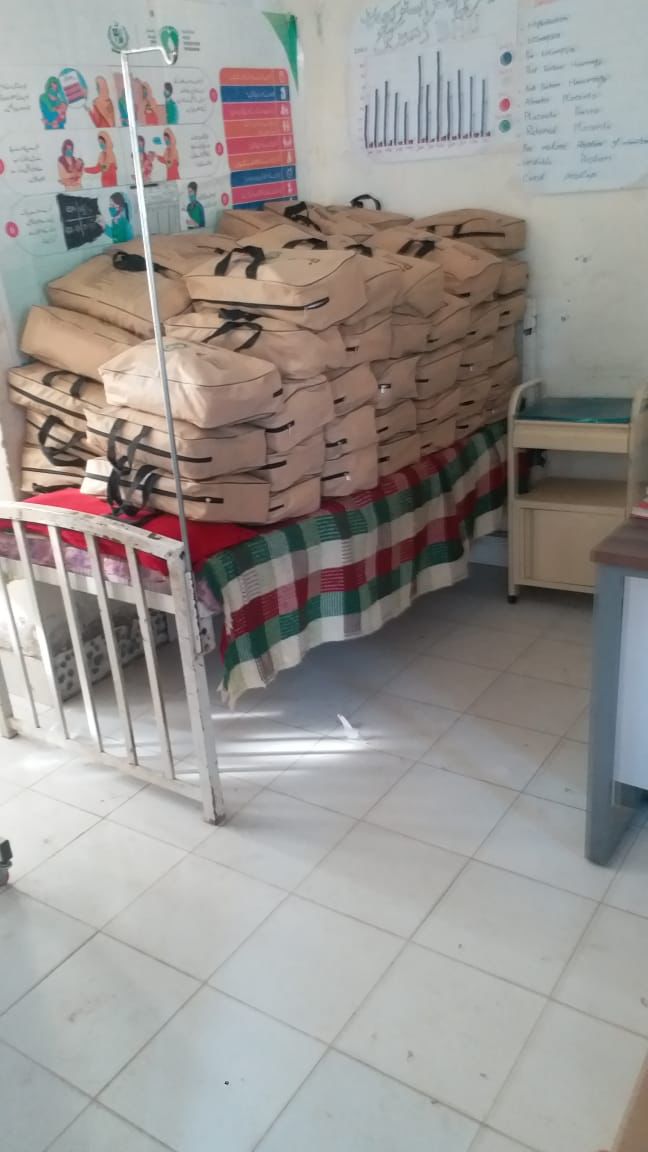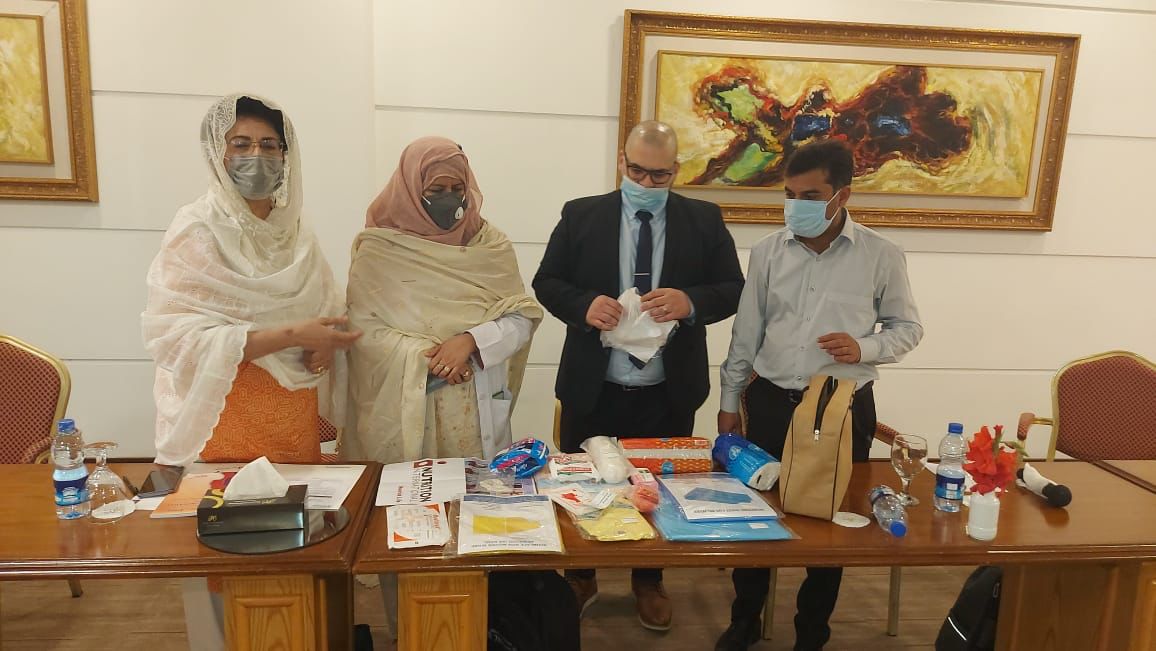Field Stories
Ten inspiring global nutrition stories
December 17, 2024
WP_Term Object
(
[term_id] => 49
[name] => Field Stories
[slug] => all-field-stories
[term_group] => 0
[term_taxonomy_id] => 49
[taxonomy] => news-category
[description] => Discover the personal stories of people whose lives have been impacted by better nutrition, and those working tirelessly to deliver it.
[parent] => 0
[count] => 180
[filter] => raw
)
Safe delivery kits support the health of pregnant women in Pakistan
We explore the benefits of safe delivery kits and what it means for women living in the tribal districts of Khyber Pakhtunkhwa province.
Posted on June 24, 2022
Being pregnant can be an incredibly stressful time for mothers, many of whom will face sleepless nights worrying about the health and future of their children. This stress is amplified for people in resource-poor settings as they may face limited access to the medical equipment or care needed to support the safe delivery of their newborns. This is especially true in the Newly Merged Tribal Districts in the Khyber Pakhtunkhwa province of Pakistan.
These tribes, mainly Afridi, Orakzai, Mohmand, Shinwari, Wazir and Mahsud, live in seven districts near the Pakistan and Afghanistan border. The geography is mountainous terrain with poor road infrastructure and lacks reliable public transportation. Although there have been improvements by the Khyber Pakhtunkhwa government since the districts merged in 2018, availability and accessing of services remains a challenge.
One of the most common issues observed in the tribal districts’ health facilities is a lack of essential medical equipment and supplies for conducting safe deliveries.

Dr. Yozan Shahid, Nutrition International’s National Coordinator of Maternal, Newborn, Child and Adolescent Health and Nutrition program in Pakistan, explained the cultural and resource constraints affecting neonatal and maternal health in these districts. “Most of the women prefer to have deliveries through traditional birth attendants at home, thus exposing themselves to different infections due to unhygienic environments and the use of non-sterilized equipment,” he shared.
In response to the high rates of neonatal deaths and maternal mortality in Pakistan, “safe delivery kits” used by skilled health workers are a vital tool in helping to prevent infections during labour. Since the kits are small and easily transported, they have become an invaluable product in these districts.
However, due to COVID-19, government funds needed to be redirected and resulted in a shortage of kits. Seeing this critical gap in care, Nutrition International stepped in to help to support the supply of safe delivery kits during the pandemic in partnership with the Prime Foundation and the Government of Khyber Pakhtunkhwa. Although the kits are seemingly simple in nature, they have great potential to help reduce the risk of neonatal and maternal infections during deliveries.
Antenatal care reduces maternal and perinatal mortality and morbidity rates through the detection and treatment of some potentially harmful or deadly conditions. But its coverage remains low within the tribal districts. Women and newborns are at risk of developing a variety of bacterial, viral, and parasitic infections due to the use of non-sterilized equipment by traditional birth attendants. Most infections can be prevented by following the hygiene and sanitation guidelines and recommendations outlined by instructions provided within the kits.
“It is very important that the health workers themselves are aware of the use and benefits of the kits so that they can effectively spread awareness.
— Dr. Yozan Shahid, Nutrition International’s National Coordinator of Maternal, Newborn, Child and Adolescent Health and Nutrition in Pakistan
The kits are equipped with 19 items that follow the United Nations Population Fund’s (UNFPA) standards. They provide health workers with an array of sterilized tools at their fingertips, including plastic aprons, plastic cord clamps, sterile rubber surgical gloves, a bulb sucker to clear the newborn’s airway, maternity pads for mothers to wear after birth, a clean sheet to wrap the newborn, and pictorial instruction sheets to guide the user in how to use the items.
Along with the kits, Nutrition International also promotes and supports skilled birth deliveries by training public sector staff, such as community midwives and female medical officers. The kits are most effective when used by a skilled birth attendant.
“It is very important that the health workers themselves are aware of the use and benefits of the kits so that they can effectively spread awareness to other community members,” said Dr. Shahid. “Health and frontline workers know the safe delivery kits will help reduce the risk of infection during labour and delivery in this region.”
“The provision of safe delivery kits has supported clean delivery practices in our health facility,” affirmed Khattam Naz, a Lady Health Worker from the Basic Health Unit in the Orakzai district. “Previously we had no such delivery kits which were of this quality. The standard of safe delivery kits provided by Nutrition International is remarkably high.”

New mother, Safa Bibi, gave birth to her son with the support of the safe delivery kits. “We have a secret in our culture. It’s that birth is painful. We are grateful to Nutrition International for providing the government with safe delivery kits that made my delivery easier, and my baby stays safe, forever in my arms.”
“With the safe delivery kits in place, the confidence of mothers and healthcare providers are improved by the provision of the high-quality, hygienic kits,” Dr. Shahid stated. “They are no longer as worried about the spread of infection by using low-quality kits.”
Another mother, Salma Bibi, who gave birth to a boy with the help of a health worker using a kit, felt extremely grateful and proud to share her experience. “My shining sun is born and left a footprint upon my heart. My baby needed love, warmth, comfort, and a sweet embrace and that was only possible through Nutrition International’s support in our village.”
Learn more about our work in Pakistan.